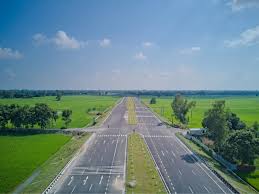The National Highways Authority of India (NHAI) has unveiled a significant reform in its land acquisition protocols, standardising Joint Measurement Surveys (JMS) to enhance accuracy and drastically reduce disputes. This strategic move is pivotal for accelerating the nation’s ambitious infrastructure development agenda, laying the groundwork for more efficient, equitable, and sustainable urban and regional connectivity. By addressing historical inconsistencies and bolstering transparency, NHAI is poised to expedite crucial projects that underpin India’s transition towards zero net carbon, eco-friendly cities.
For years, inconsistencies in JMS reports and the frequent omission of essential details plagued the land acquisition process for national highway projects. Such deficiencies often escalated into protracted legal disputes, leading to substantial delays, increased project costs, and inflated compensation claims. Recognising these significant impediments, NHAI embarked on a comprehensive overhaul. “Given the past experiences and to organise the surveys, a standard template for JMS has been developed. Additionally, some instructions such as a deadline to complete the process and proper documentation of all assets as evidence, have also been issued to address existing shortcomings,” officials stated, highlighting a proactive shift towards systematic efficiency.
The newly implemented framework mandates a meticulous approach to land parcel measurement and boundary demarcation. Joint surveys for proposed highway developments will now be collaboratively conducted by representatives from NHAI, the respective state government departments, consultants responsible for Detailed Project Reports (DPR), and crucially, the landowners themselves. The DPR consultant’s scope of work has been expanded to include mandatory geo-tagging and the preparation of an exhaustive inventory of all land-attached assets, encompassing structures, trees, and plants within the Right of Way (RoW), systematically documented with both photographic and video evidence. This multi-stakeholder and technologically-driven approach aims to inject unprecedented levels of precision and transparency.
To further accelerate the process and embed accountability, new directives stipulate that the Joint Measurement Survey must be completed within a strict 15-day window from the date of publishing the ‘3A notification,’ which formally declares the government’s intention to acquire land. The survey results, along with cross-verified GIS-based data and geo-tagged photographic evidence of all assets, are now mandated for immediate upload to the Bhoomirashi portal. This single-point digital platform streamlines the processing of land acquisition notifications, acting as a central repository for all critical information. This digital integration is a game-changer, not only reducing bureaucratic bottlenecks but also ensuring real-time monitoring and enabling faster project commencement, which in turn minimises the prolonged environmental footprint often associated with delayed infrastructure projects.
This comprehensive standardisation is poised to significantly mitigate the legal hassles that have historically plagued land acquisition. By ensuring accuracy and completeness from the outset, NHAI anticipates a drastic reduction in disputes and subsequent compensation claims. This directly contributes to the vision of equitable cities, where landowners receive fair and timely compensation, fostering trust and cooperation rather than prolonged litigation. Such transparency is fundamental to social equity, ensuring that the burden and benefits of development are distributed justly across all segments of society, a cornerstone of sustainable urbanisation.
Ultimately, NHAI’s fortified land acquisition policy extends beyond mere administrative efficiency; it represents a foundational pillar for India’s future-ready cities. By fostering a predictable, fair, and technologically advanced acquisition process, NHAI is not only unblocking bottlenecks for rapid highway construction but also creating a more conducive environment for integrated, eco-friendly urban planning. Expedited infrastructure development, underpinned by transparent land acquisition, is crucial for fostering efficient public transport systems, reducing carbon emissions from vehicular congestion, and promoting overall economic inclusion—elements essential for building truly sustainable, resilient, and inclusive cities for generations to come.
Also Read: NHAI Acts Swiftly on Amritsar-Jamnagar Road Quality Lapses


